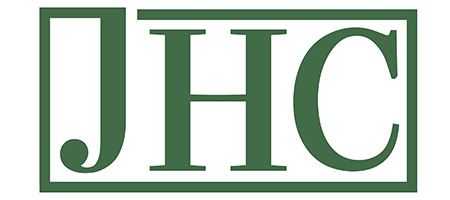Embarking on the journey of retirement is a significant life transition that necessitates careful planning to ensure financial security and a fulfilling lifestyle. At Jennings Hawley & Co, we understand the importance of a well-thought-out retirement strategy tailored to your unique needs and aspirations. In this guide, we delve into the key aspects of retirement planning, offering insights, tips, and personalized solutions to help you navigate this crucial phase of life confidently.

Understanding Your Retirement Goals
Defining Your Vision
Retirement is not a one-size-fits-all concept. It begins with a clear understanding of your personal goals and aspirations. Ask yourself: What kind of lifestyle do I envision during retirement? Are there specific hobbies or travel plans you want to pursue? By defining your vision, you set the foundation for a retirement plan that aligns with your dreams.
Determining Retirement Expenses
Estimating your future expenses is a crucial step in retirement planning. Consider factors such as housing, healthcare, travel, and leisure activities. Jennings Hawley & Co offers personalized consultations to help you create a realistic budget that ensures financial comfort throughout your retirement years.
Financial Assessments and Strategies
Assessing Your Current Financial Situation
Before planning for retirement, it’s essential to assess your current financial standing. This includes evaluating your assets, liabilities, and existing investments. Our financial experts at Jennings Hawley & Co can conduct a thorough analysis, providing insights into your current financial health and identifying areas for improvement.
Creating a Retirement Savings Plan
One of the pillars of retirement planning is building a robust savings strategy. We guide you through the process of setting savings goals, exploring tax-efficient savings options, and establishing investment portfolios that align with your risk tolerance and time horizon.
Maximizing Retirement Accounts
Explore the benefits of tax-advantaged retirement accounts such as 401(k)s, IRAs, and Roth IRAs. We help you understand contribution limits, withdrawal rules, and the potential tax advantages associated with each account, ensuring you make informed decisions to optimize your retirement savings.
Investment Diversification
Diversifying your investment portfolio is key to managing risk and maximizing returns. Our financial advisors work closely with you to design a diversified investment strategy that balances risk and reward, adapting to changing market conditions while safeguarding your retirement funds.
Navigating Social Security and Pension Options
Understanding Social Security Benefits
Social Security is a fundamental component of retirement income. We provide insights into how Social Security benefits are calculated, when to claim them, and strategies to maximize your entitlements. Our goal is to help you make informed decisions that enhance your financial security during retirement.
Navigating Pension Plans
If you’re fortunate enough to have a pension plan, understanding its terms and options is crucial. We guide you through pension plan features, survivor benefits, and lump-sum versus annuity options, helping you make choices that align with your long-term goals.
Healthcare and Long-Term Care Planning
Securing Healthcare Coverage
Healthcare costs can be a significant factor in retirement planning. We explore healthcare coverage options, including Medicare, supplemental insurance, and long-term care policies. Jennings Hawley & Co assists you in selecting a comprehensive healthcare plan that addresses your medical needs while preserving your financial well-being.
Long-Term Care Considerations
Planning for long-term care is an essential aspect of retirement preparation. Our experts help you understand the implications of potential long-term care needs, exploring insurance options, and developing a plan to protect your assets and ensure quality care when needed.
Estate Planning and Legacy Building
Crafting an Estate Plan
Estate planning is not just for the wealthy; it’s a critical aspect of ensuring your wishes are honored and your assets are distributed according to your desires. We work with experienced estate planning professionals at Jennings Hawley & Co to help you create a comprehensive plan that includes wills, trusts, and power of attorney documents.
Legacy Building and Charitable Giving
For many, retirement planning includes considerations of leaving a lasting legacy. We explore strategies for charitable giving, family wealth transfer, and creating a legacy that reflects your values and contributions to future generations.
Staying Informed and Adapting to Change
Regular Reviews and Adjustments
Retirement planning is an ongoing process that requires regular reviews and adjustments. We emphasize the importance of staying informed about market trends, changes in legislation, and adjustments to your personal circumstances. Our team at Jennings Hawley & Co is dedicated to keeping you well-informed and adapting your plan to ensure continued financial success.
Post-Retirement Financial Guidance
Once you’ve transitioned into retirement, our support doesn’t end. Jennings Hawley & Co offers post-retirement financial guidance, helping you manage withdrawals, navigate tax considerations, and adapt your strategy to evolving needs. Our commitment is to be your partner throughout your retirement journey.
At Jennings Hawley & Co, we believe that retirement should be a chapter of life filled with financial confidence, personal fulfillment, and peace of mind. Our comprehensive retirement planning services are designed to guide you through every step of the process, empowering you to make informed decisions that align with your unique goals and aspirations.
Embark on your retirement journey with confidence. Contact Jennings Hawley & Co today for a personalized consultation, and let us help you craft a retirement plan that turns your dreams into reality. Your future awaits – let’s build it together.
Retirement FAQ’s
Whether you’re just getting started or rethinking your current strategy, it’s normal to have questions about retirement planning. Not only do you want to have a basic understanding of where you are, but you also want to know what you should do next. Retirement looks different for everyone. But no matter what it may look like for you, you need to learn as much as you can if you want to have an effective plan.
Here are some common questions people ask about retirement planning.
Your retirement income should be at least 80% of what you made each year before you retired. So if your annual income was $100,000 when you retired, you’ll need to make at least $80,000 a year to have a comfortable lifestyle after you have left the workforce. This amount can go up or down as you adjust for other sources of income (such as social security payments, pensions, and part-time employment). You can also adjust it to compensate for other factors (such as your health and desired lifestyle).
The best time for you to retire will vary according to your personal needs and circumstances. It will also depend on when you have the financial resources to stop working, but it’s not always a choice. In 2018, 37% of workers said that they were forced into retirement earlier than they had planned (primarily because their health had changed). As you decide on when to retire, you want to think about your full retirement age (FRA). This refers to the age you will have to reach to receive full retirement benefits from Social Security.
Your age plays a major role in retirement planning, but it can also determine when you should claim Social Security. You can claim it as early as 62, but you’ll have a permanently reduced benefit if you collect it before you reach your full retirement age (which can cost you over the long term). The full retirement age is 67 for people who were born on or after 1960. After you reach it, your Social Security benefits will increase by 8% every year until you reach 70. Your benefits will no longer increase after that age. That’s why most people should wait until they have reached full retirement age before they claim Social Security.
A 401(k) is an employer-sponsored plan, while an individual retirement account (IRA) can be opened by individuals without getting their employers involved. Each account has its own set of rules and benefits. But if you want to optimize your retirement accounts, experts recommend investing in both. Max out your 401(k) and your IRA, so you can save the maximum legal amount each year. And the earlier you start saving, the more money you’ll be able to save later on. You’ll also save money more quickly because of the tax advantages that come with those accounts.
The main difference between these two accounts has to do with the timing of their tax advantages. Contributions made to a traditional IRA are tax-deductible in the year they were made, while any withdrawals are taxed at the income rate when you make them. Roth IRA contributions aren’t tax deductible when you made them, but any withdrawals you make during your retirement are tax-free.
401(k)s and standard IRAs can invest in traditional assets (such as stocks, bonds, and mutual funds), but a self-directed IRA (SDIRA) can also invest in alternative assets (such as real estate, cryptocurrency, private equity, precious metals, and LLC’s). To help you diversify your portfolio and mitigate risk, you should invest in a variety of assets. But when it comes to alternative investments, experts recommend investing in ones that you have prior knowledge and experience in.
Anyone who is 65 and older qualifies for a health insurance program called “Medicare,” but it doesn’t cover all of your healthcare costs. Even with traditional Medicare, a 65-year-old couple who retired in 2022 can expect to spend an average of $315,000 on health care and medical expenses throughout their retirement. One way to plan for these costs is to have a health savings account (HSA). While you’re no longer able to contribute to it once you enroll in Medicare, you can keep using the funds for any qualified medical expenses.
If you’re looking for a CPA in Corpus Christi to help you with your retirement planning, be sure to get in touch with Jennings & Hawley.
